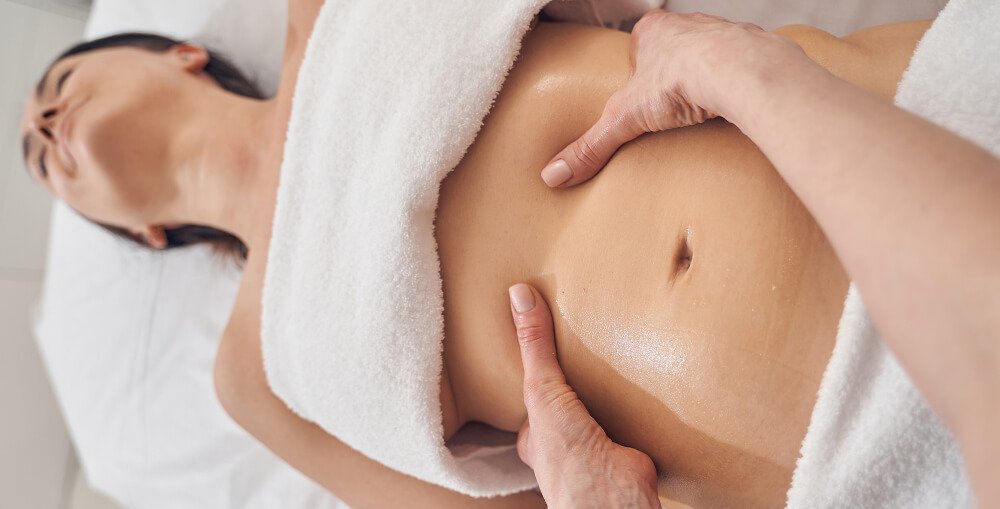Prenatal Massage Vancouver Nurturing Care for Expectant Mothers
At West End Wellness in Vancouver, Prenatal Massage provides expectant mothers with nurturing care tailored to the unique needs of pregnancy.
This specialized massage helps alleviate common discomforts such as back pain, swelling, and stress, promoting relaxation and well-being for both mother and baby. Our skilled therapists are trained in prenatal techniques, ensuring a safe and soothing experience throughout all stages of pregnancy.
Trust West End Wellness to support your journey with compassionate and expert care. Book your prenatal massage today and embrace the comfort and serenity you deserve.
Why Prenatal Massage in Vancouver Is Essential for Moms-to-Be
Prenatal massage at West End Wellness in Vancouver is essential for expectant mothers seeking relief from the physical and emotional stresses of pregnancy.
This specialized therapy focuses on easing discomfort such as back pain, leg cramps, and swelling while promoting relaxation and stress reduction.
Our therapists are experts in prenatal care, providing gentle and safe massages that support the health and well-being of both mother and baby.
At West End Wellness, we create a nurturing environment where moms-to-be can experience the benefits of personalized care, making prenatal massage an integral part of a healthy pregnancy.
What is a Prenatal Massage?
Pregnant women's changing bodies necessitate a massage tailored to their needs.
Lying face down can be uncomfortable for pregnant women; thus, expertise and care are necessary to ensure that the patient is comfortable.
Our postnatal and prenatal massage therapists in Vancouver are well-versed in positioning a pregnant woman and applying the appropriate massage techniques.
Back pain, swollen legs, leg cramps, and sore feet are common complaints of expectant and new mothers.
Pregnancy and postnatal massages have the same goals as regular massages:
Ease tense muscles
Ease pain
Increase blood flow
Reduce swelling in the legs
Enhance joint mobility and flexibility
How Can A Prenatal Massage Help Me?
Holistic well-being: More than just alleviating your symptoms, a Prenatal Massage can positively impact your and your unborn child's overall health and well-being. Receiving massages regularly can benefit your physical and mental health.
Better night's rest: Since you've become pregnant, it may be difficult to sleep at night. Pregnancy insomnia is a term used to describe this condition. The massage's calming effect can alleviate insomnia.
Better circulation: Massage improves blood circulation, which is especially beneficial during a prenatal massage because it allows for more efficient delivery of vital nutrients and oxygen to your developing child.
Back pain relief: The lumbar spine (low back) experiences increased strain as the baby's weight and height increase, shifting the center of gravity. Massage to the lower back can help relax overworked muscles.
Edema/Swelling: Pregnancy necessitates a significant increase in blood volume, but this can cause swelling and compression syndromes. People often complain of thoracic outlet syndrome, sciatic nerve compression, and carpal tunnel, among other things. The goal of massage therapy is to locate and alleviate the compression point.
Relieving Stress: Research shows that dopamine and serotonin, two hormones linked to pleasure, are released during a massage. Stress-related cortisol levels have also been shown to decrease. Because of these reasons, most prenatal massages emphasize a relaxation-based approach.
Can Pregnant Women Get Massages?
After the first trimester, a prenatal massage is typically considered safe if you get the all-clear from your doctor and tell your prenatal massage therapist what you expect.
You should avoid massage throughout the first three months of your pregnancy because it can cause dizziness and exacerbate morning sickness.
No matter how many stories you may have heard, there's no magic eject button, and there isn't much good scientific data that specific massage forms can impact one way or the other.
Some prenatal massage therapists avoid specific pressure sites, such as the one between the heel and ankle bone, because they are concerned that it may provoke contractions; however, the research on whether massage can truly jumpstart labour is equivalent to nonexistent.
Avoid getting your tummy massaged while pregnant, as it can cause discomfort.
Do not rest on your back throughout your massage when you're in the second half of your pregnancy; the heaviness of the uterus and baby restricts circulation and compresses blood vessels, generating more difficulties.
Pregnant women shouldn't expect deep tissue work on their legs during a massage.
Deep massage can dislodge blood clots, which can be dangerous for pregnant women, even though light pressure is safe (and can feel divine!).
Still, that could be dangerous. If you're applying pressure to another part of your body, you can make it as firm or gentle as you like.
Never be afraid to tell your prenatal massage therapist when something feels good or starts to hurt.
Remember that while any prenatal massage therapist can technically work on pregnant women, it is advisable to go to a specialist with experience.
If the therapist does not have any specific certification, be sure to inquire during your consultation.
As a result, you'll have peace of mind knowing that your changing anatomy is being cared for by someone who knows what they're doing.
The last thing to remember is to always consult your doctor before getting a prenatal massage — especially if you suffer from any of the conditions that could make massage during pregnancy dangerous, including bleeding or abdominal pain, morning sickness, preeclampsia, a contagious virus, diabetes, fever, or high blood pressure.
What Can I Expect From A Prenatal Massage?
Your treatment will be tailored to ensure the safety and comfort of both mother and child.
Pregnancy massages use specialized chairs and pregnancy pillows to keep you in a safe and comfortable position so that you can lie face down for part or all of the treatment.
When you arrive, you will be greeted and asked to sit down. After reviewing your intake form, you and your prenatal massage therapist will talk. Massage therapy treatment focuses on your desired outcome, so you'll be asked why you came in and what you hope to get out of it.
Questions about general prenatal safety and your pregnancy will then be asked. Please let your prenatal massage therapist know if you have a history of miscarriages. The safest therapy can be ensured by answering these questions in the most precise and complete manner possible with this information. Following this, a review of the alleged wrongdoing will be conducted.
Your therapist will go through any potential dangers and advantages, the posture you'll be in, draping, and the areas being treated and why. You'll have enough preparation time to position yourself correctly for your massage after your RMT leaves the room to show you how to get on the table and where pillows will be placed for comfort.
Your comfort will be monitored regularly throughout the procedure. Your input will fine-tune the pressure and techniques used during the massage. If you have any questions, don't hesitate to ask your therapist! If you want to learn more about the human body, now is a great time.
Time to get up from the table after the treatment will be provided. You'll be given tips on maintaining the benefits of your massage at home and dealing with any tightness or ailments you experience. At this point, any recommendations for additional treatment will be made.
Is A Massage Essential In Postnatal Care As Well?
Postnatal massages, which are full-body massages similar to those given to expectant mothers, are especially beneficial to those who have just given birth.
Having a baby can be a joyous occasion, but it can also be overwhelming. The body's attempt to return to its pre-pregnancy state can last up to six months after the baby's delivery.
During this stage, massage therapy can also be beneficial.
Now that you know what a prenatal massage is, you're probably wondering where to get one.
If you're in Vancouver, you can book an appointment with our expert massage therapist through our convenient online booking system.
With the most excellent prenatal massage therapist in Vancouver has to offer, you can rest confident that you're in good hands with us!
Maximize Your RMT Benefits:
Hassle-Free Direct Billing at West End Wellness
Experience hassle-free healthcare with our direct billing service. We handle insurance claims so you can focus on your wellness journey without financial stress. Enjoy your treatments at West End Wellness worry-free.
Click below to see if your insurance is included, and book your appointment today!
Let us be your partner in health and well-being.
Take the first step on your journey to optimal health and wellness. We are here to help you achieve your health goals, reduce pain, and improve your quality of life.
For any questions, or concerns, or to schedule an appointment, feel free to contact us at:






